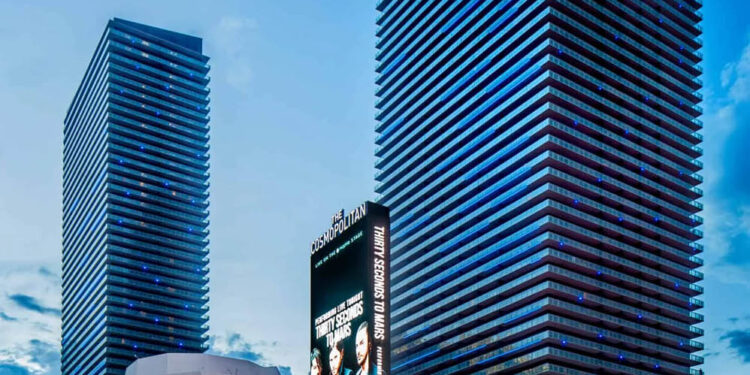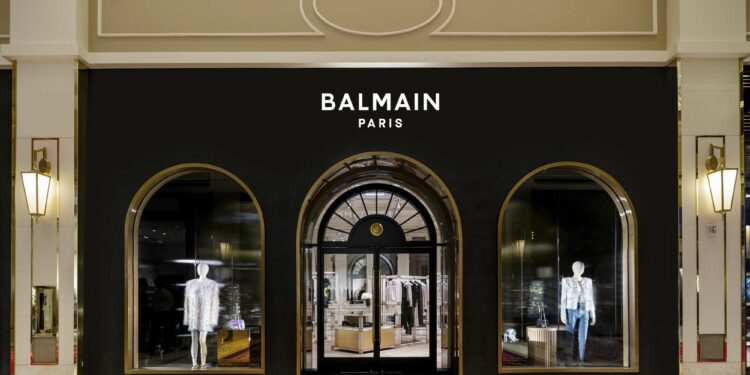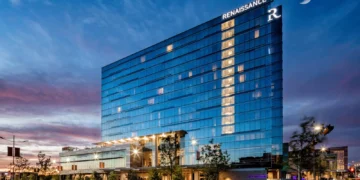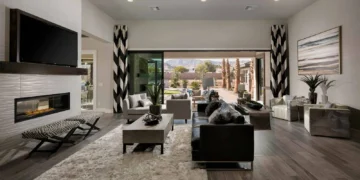Bottom Line: Delivering compelling hotel imagery means blending creative vision with logistical precision. By planning room-view shots, mastering ambient and artificial light, and staging interiors thoughtfully, we create visuals that sell hospitality experiences—while minimizing time in post-production.
When we photograph hotels, our role extends far beyond creating pretty pictures. Each frame we capture contributes to a guest’s impression of the property and ultimately influences booking decisions. From grand exterior façades to intimate suite vignettes, our images must faithfully represent the hotel’s design, atmosphere, and amenities. Mastering this craft requires a balance of careful planning, technical expertise, and an eye for detail. Here’s how we approach every hotel shoot to ensure efficiency and excellence.
Highlighting Hotel Room Views
Room views often determine a guest’s choice—and their willingness to pay a premium. Many hotels tier rooms by vista, from city panoramas to tranquil gardens or oceanfront scenes. It’s our job to document these distinctions clearly and consistently. Before shooting, we review the client’s room categories and map out which angles best frame each view. A lake-view suite needs a wide, centered shot that showcases the waterline, while courtyard rooms may call for a composition that includes both seating areas and greenery. By emphasizing these views in our shot list—complete with consistent framing and exposure settings—we help clients set accurate expectations and minimize guest disappointment.
Controlling Ambient Lighting
Hotel rooms typically feature a mix of LED, tungsten, and fluorescent fixtures that create a tapestry of color temperatures. To achieve a cohesive look, we begin by illuminating every lamp, sconce, and overhead light at its lowest setting. This baseline layer preserves the designer’s intent and ensures the room feels warm and inviting. Next, we dial in our camera’s white balance—often using a custom Kelvin setting—to neutralize any unwanted color shifts. If ambient light alone fails to flatter the space, we prepare to introduce artificial lighting that matches the room’s mood rather than overpowering it. Striking this balance is crucial: a bright fill can elevate a dim corner without flattening textures or altering the guest experience.
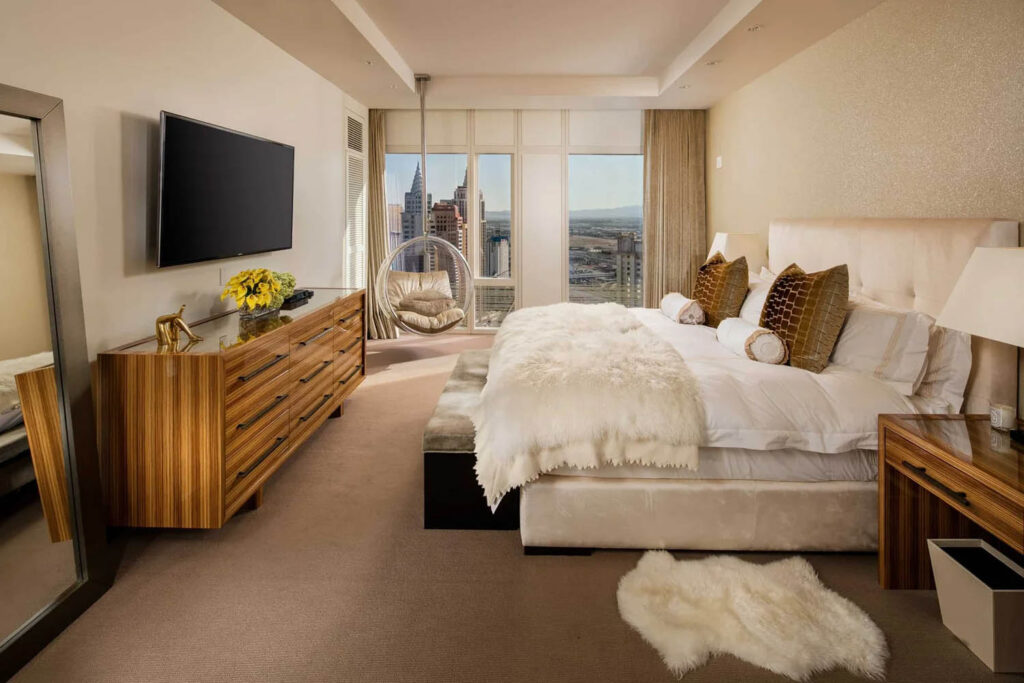
Integrating Artificial and Strobe Lighting
Once ambient lighting is under control, we bring in strobes or continuous LED panels to fill shadows, accent architectural details, and maintain depth. Our process typically goes like this:
- Expose for the View: We start by metering the exterior—from a balcony or window—to ensure the outside world appears natural. If the landscape comes out too dark, the room can feel cave-like, which isn’t what a guest expects.
- Add Fill Light: With the exterior correctly exposed, we position strobes off-camera—often behind a softbox or umbrella—to mimic natural light sources. This gentle fill lifts interior shadows, revealing textures in upholstery or finishes on hardware.
- Refine with Modifiers: For precision, we use grids, gobos, and gels to shape and color-correct the light. Gels help us match the color temperature of ambient lamps, preventing unnerving blue or orange casts. Grids keep light from spilling onto reflective surfaces like mirrors or polished wood, reducing post-production cleanup.
By layering strobes over ambient lighting, we craft images that feel both natural and polished—key for marketing materials that showcase a property’s true character.
Staging Interiors for Authenticity
Before we lift a lens, the space itself must be guest-ready. We coordinate with housekeeping and styling teams to remove personal items, fluff linens, and ensure linens and pillows are aligned perfectly to our camera angle. Trash bins and excess collateral—magazines, menus, or branded stationery—get stashed out of frame unless they contribute to the story. While fresh flowers and a bottle of champagne can add warmth, we caution clients against over-staging; if guests arrive to find empty vases, their experience falls short of expectations. Instead, we focus on subtle touches—like a neatly folded throw or a well-placed amenity tray—that reflect the hotel’s brand and promise.
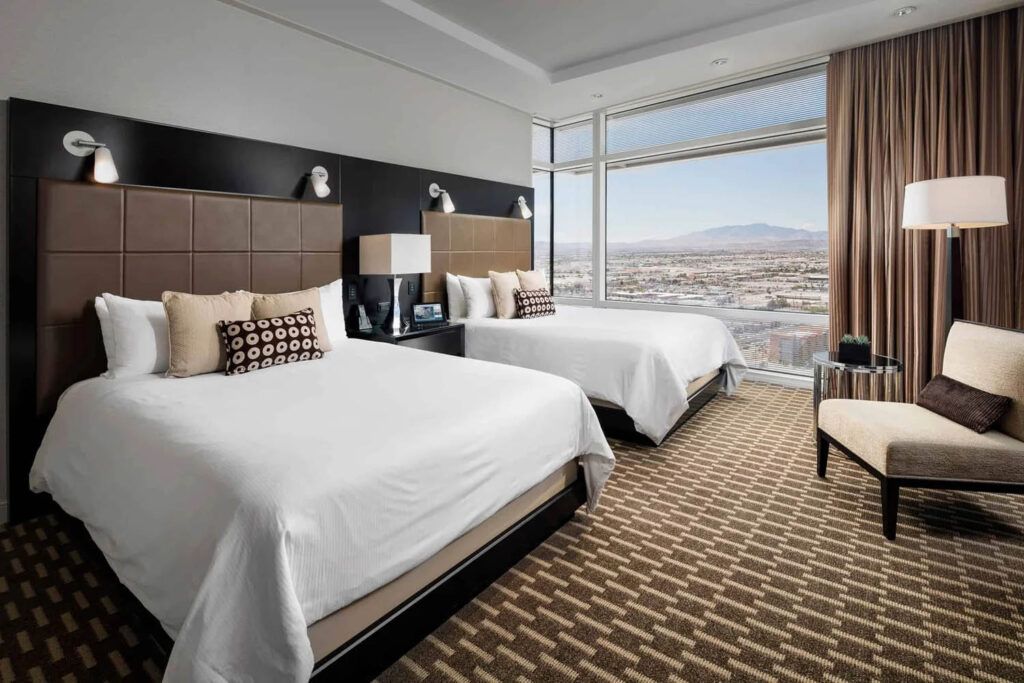
Delivering a Seamless Workflow
Our approach to hotel photography is both art and science. We group similar shots—such as all city-view rooms—into blocks to minimize gear moves and lighting resets. We time exterior shots for golden-hour warmth and twilight silhouettes, always mindful that dusk images require careful blending of ambient and strobe sequences. Throughout the day, we share test frames with clients via messaging apps, ensuring alignment on composition and mood without constant in-person checks that slow us down. This real-time feedback loop prevents surprises and fosters trust.
Finally, once we’ve captured the required shot list, we don’t pack up immediately. Instead, we take a few extra frames—perhaps a dramatic pool reflection or an unconventional angle of a lobby chandelier—to offer added value. These bonus images can become hero shots that elevate a property’s marketing campaign and reinforce our reputation as comprehensive, collaborative partners.
